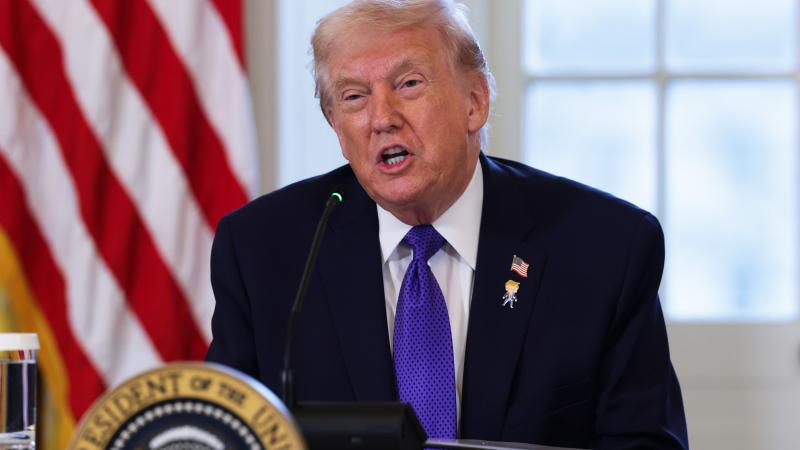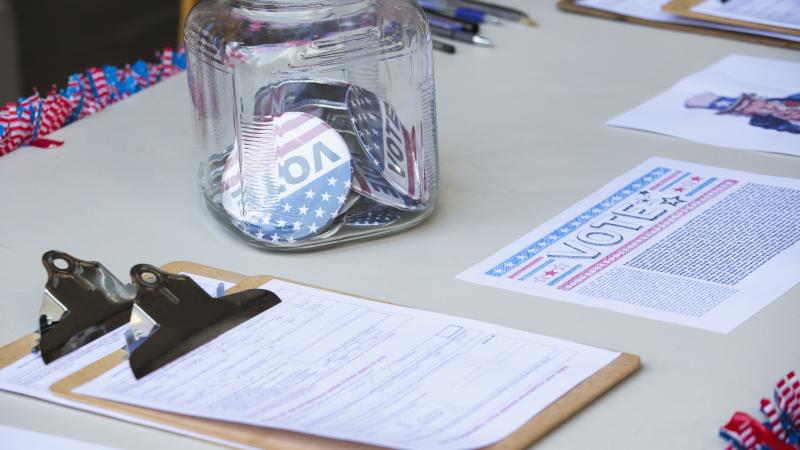Hunter Biden's 'sweetheart deal' unraveled in court for reasons that now seem glaring
Hunter had been expected to plead guilty to two misdemeanor tax charges and admit to a gun violation that could later be dismissed.
First son Hunter Biden thought he had solid deal with the U.S. federal government over tax and gun-registration charges – maybe even a "sweetheart deal" – that would keep him out of prison and potentially secure immunity against several other potential charges.
But the deal unravelled dramatically Wednesday inside a federal courthouse in Delaware when the presiding judge ultimately delayed her approval over several concerns, including its constitutionality.
Biden had been expected to plead guilty to two misdemeanor tax charges and admit to a gun violation that could later be dismissed. He would enter a pre-trial diversion program and avoid prison time under the plan, with prosecutors recommending he receive probation.
Specifically, he was supposed to admit to not paying taxes in 2017 and 2018, with each offense carrying a maximum of 12 months in prison.
The gun charge, however, carries a maximum sentence of 10 years, if a defendant is convicted. Biden was instead supposed to enter the diversion program to avoid prison and a conviction.
The agreement followed a five-year federal investigation into Biden and his business dealings.
That investigation, however, has faced allegations of political interference by the Justice Department, with two IRS agents who worked on the case coming forward to allege the agency allowed the statute of limitations to expire on the worst of the charges and that prosecutors prevented investigators from pursuing the case effectively.
Conservatives had urged U.S. District Judge Maryellen Noreika to reject the plea agreement – even calling it a "sweetheart deal – amid the allegations and concerns it was too lenient, arguments with which she evidently agreed.
Noreika declined to approve the plea deal, forcing Biden to plead not guilty.
Her reservations brought light on numerous unusual elements of the agreement. Here are the biggest eyebrow raisers:
Noreika took issue with the pre-trial diversion program
Of the charges to which Hunter was expected to admit, the gun violation carried the longest potential prison sentence.
For that count, he was to enter into the diversion program, which attempts to ensure accountability for wrongdoing and rehabilitate the defendant without their having to spend time behind bars.
Those who qualify for such a program may avoid charges, see existing charges reduced or dismissed, or secure more favorable sentencing terms.
The agreement was binding on the judge
While the judge retained sentencing discretion for the guilty pleas, the agreement would have been binding in terms of the pretrial diversion program.
Noreika appeared to take issue with the agreement not to prosecute being in the binding pretrial diversion program rather than the plea agreement and asked also about the breadth of the agreement not to prosecute.
"Is this even constitutional?" Noreika asked about the agreement and asked both sides to file briefs explaining its structure.
There were disputes about the scope of immunity Hunter would receive
The deal was supposed to grant Biden broad immunity from future prosecution, but prosecutors and defense lawyers were apparently in dispute over the implications.
During the proceedings, the prosecutors admitted an investigation remained ongoing.
CNN reported that Noreika had asked whether the immunity would cover potential charges stemming from a possible violation of the Foreign Agents Registration Act (FARA), which prosecutors confirmed would not be included in the immunity deal.
The law essentially requires those involved in overseas deals make periodic disclosures about them.
Revelations that the DOJ intended to retain charging options over such a count reportedly prompted objections from the defense counsel and led to the collapse of any accord between the parties.
Wisenberg tweeted the parties called the sides appearing to openly disagree in court about the scope of immunity a "joke."
"Ambiguous terms in a plea agreements are construed against the government!," he posted. "There should be no room for disagreement on the key terms of the agreement. So, this was either astounding incompetence or corruption on DOJ’s part. This looks like a wink and a nod deal ... where DOJ would have plausible deniability if the judge asked no questions and accepted the deal."
Republican lawmakers celebrated the judge's decision, which will extend their efforts to tie President Biden to his son as the president seeks reelection.
Texas GOP Rep. Mayra Flores tweeted: "God bless Judge Noreika. Judge Noreika just rejected the Hunter Biden plea deal."
Editor's note: This article has been updated upon release of official documents to reflect that the agreement not to prosecute was included in the binding diversion program and the judge took exception that arrangement. It also clarifies that Noreika retained discretion over the final sentencing guidelines with respect to the proposed guilty pleas.
Ben Whedon is an editor and reporter for Just the News. Follow him on Twitter.
















